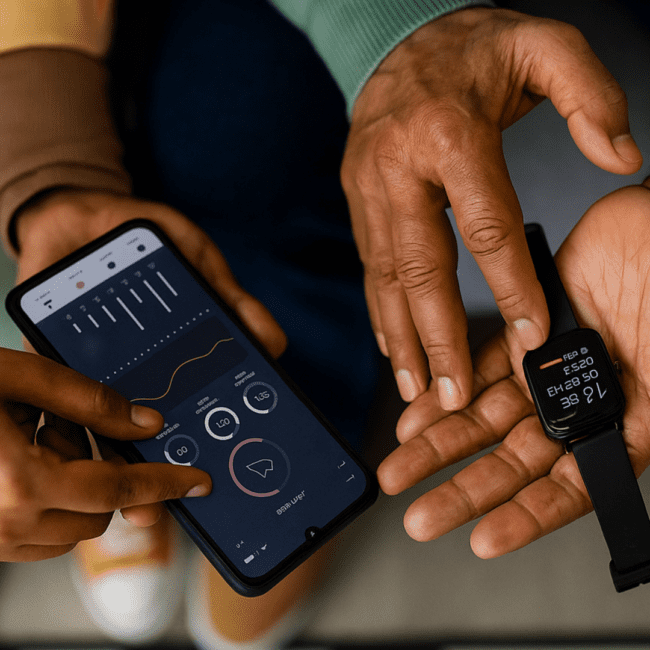Caring for elderly parents from a distance presents unique challenges, but it’s not impossible. The emotional distance, communication gaps, and worry over their well-being can create stress for adult children. Thankfully, in today’s tech-savvy world, simple tools can bridge the gap. The key lies in empowering your parents with technology that enables communication, connection, and even caregiving from afar.
Let us guide you through the process of teaching your parents basic technology skills, so you can stay emotionally and practically connected despite the distance. With the right tools, patience, and support, long-distance caregiving can be more effective and less stressful.
Start with the Basics: Choose Simple, Friendly Tech Tools
The key to success when introducing technology to your parents is to keep it simple. Start with one or two devices that will be easy for them to use and that serve multiple functions. A smartphone, tablet, or a smart speaker (such as Alexa or Google Home) are some good choices. These devices can be used for both communication and caregiving tasks.
Look for senior-friendly features, such as large icons, voice assistance, and easy charging options. Many phones and tablets now come with features tailored specifically to seniors, such as simplified interfaces and larger text. Start by choosing tools that will help with the most critical aspects of long-distance care: communication and medication reminders.
For example, a smartphone can be used for video calls to keep in touch visually, while a smart speaker can be set up to remind your parents to take their medications at specific times.
Teach One Step at a Time: Patience is Key
Teaching your parents how to use technology may take time, but don’t let that discourage you. Start small. Show them how to turn on their device, make a call, or send a simple text or photo. Take it slow and be patient as they adjust to the new tech. Keep in mind that learning a new skill later in life can be intimidating, but with the right encouragement, they will get there.
You can use video demo tools to guide them remotely. Visual learning can be very effective, and you can walk them through each step at their own pace. Another useful approach is to break down each lesson into small, manageable steps. Celebrate the small wins, like when they successfully make a video call or send a photo, and praise their efforts. This builds their confidence and makes learning enjoyable. If possible, involve a local helper, such as a neighbour or a family friend, who can assist your parents when you’re not available.
Essential Apps to Stay Connected and Informed
Now that you’ve introduced basic technology, it’s time to focus on the apps that will help maintain a strong connection between you and your parents. Here are a few essential apps that are easy to use and perfect for long-distance care:
- Video Calling Apps: Apps like WhatsApp, Zoom, or Google Duo are excellent for keeping in touch through video calls. These apps are user-friendly, and video calls allow for a more personal and meaningful connection. Schedule regular video calls, like a “Good Morning” check-in, or weekly face-to-face catch-ups to reduce feelings of isolation.
- Health & Reminder Apps: Medication reminder apps are invaluable for managing health care. You can also use calendar apps to schedule doctor’s appointments, blood tests, or other medical checkups. These reminders will help keep your parents on track and ensure they never miss an important appointment.
- Photo & Family Sharing Apps: Apps like Google Photos and family WhatsApp groups allow for easy sharing of photos, videos, and updates. Encourage your parents to share photos of their day-to-day life, which can help you stay connected and up-to-date on their health and activities. You can also send them surprise messages, videos, or photos of family events to keep them engaged.
Establishing a routine is key. Create a daily or weekly ritual that your parents can look forward to, like a regular video call or a group chat with family members. These consistent connections will help your parents feel more involved in family life.
Safety First: Teaching Online Safety Without Fear
It’s important to teach your parents basic online safety, especially as they begin using the internet more frequently. Help them understand the importance of not sharing personal information, such as one-time passwords (OTPs) or credit card numbers, over the phone or online.
In addition, make sure your parents are aware of common online scams, like phishing emails or fake messages. Show them how to identify suspicious links and remind them to only download apps from trusted sources like the Google Play Store or Apple’s App Store.
Take the time to install security features on their devices, such as spam call blockers and trusted contacts lists. Reassure your parents that it’s OK to ask for help if they’re ever unsure about something they’ve encountered online. Make online safety a team effort, where you’re available to assist them if needed.
Combining Tech with Human Touch
While technology is a great tool for connection, it should never replace the emotional bonds that come from human interaction. Tech should complement your relationship with your parents, not replace it. Use tech to send surprise videos, voice notes from grandkids, or even create digital scrapbooks with old family photos.
Additionally, keep emotional rituals alive. You can still pray together over the phone, share a virtual meal, or tell stories about family history. These moments of human connection are just as important as the practical caregiving you’re providing.
Conclusion
Empowering your parents with basic technology is not just about helping them navigate the digital world. It’s an act of love and long-term care. You don’t need to be a tech expert; you just need to start with intention and a caring heart. Teaching your parents how to use technology allows you to stay emotionally and practically connected, no matter the physical distance.
So, why not start small this week? Teach your parents one simple thing, a video call, a reminder app, or even just how to send a photo. Your effort can light up their entire world, strengthening the bond between you and providing them with the support they need to age with dignity and care.
Start today by teaching your parents just one tech skill – whether it’s setting up a video call or showing them how to send a message, every little step helps build a stronger connection.






